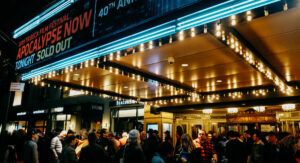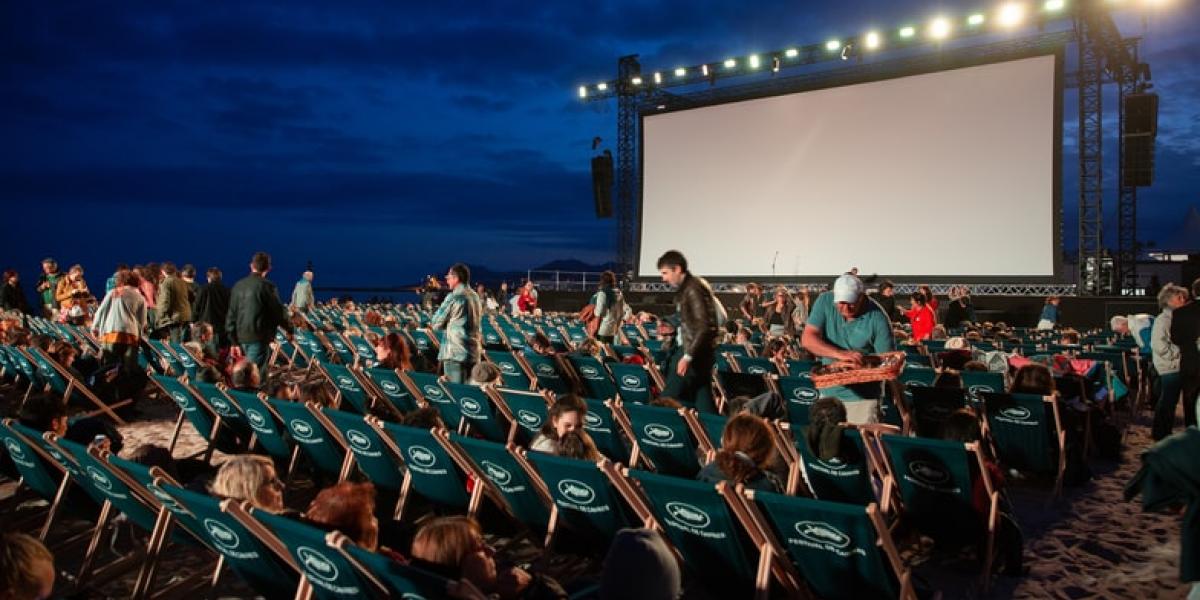Film festivals have undergone a remarkable evolution, transcending their initial role as mere showcases for cinematic works. Today, they stand as powerful influencers shaping the course of cinema and culture. This comprehensive analysis delves into the multifaceted impact of film festivals, exploring their historical roots, the changing dynamics of the industry, and the profound cultural implications of these events.
Film festivals trace their origins to the Venice Film Festival in 1932, marking the beginning of an era that would transform the landscape of cinematic appreciation. Initially conceived as platforms for celebrating artistic achievements, these festivals have evolved to become crucial launchpads for independent filmmakers, providing a global stage for diverse voices. As the cinematic landscape expanded, so did the role of film festivals, morphing into vital components of the industry’s fabric. If you want to drive to Venice to see this festival you can rent a vehicle from rent a car Beograd.
The Shifting Dynamics: From Elite to Inclusive

Over the years, film festivals have evolved from exclusive gatherings attended by industry elites to inclusive events that engage a broader audience. The Cannes Film Festival, once synonymous with glamour and exclusivity, has seen changes reflecting this trend. The emergence of digital platforms has democratized access, allowing enthusiasts worldwide to participate virtually, bridging geographical gaps, and fostering a more inclusive film community.
If you want to buy a house in Cannes you can contact one of the mortgage companies in Raleigh NC.
This democratization, while expanding opportunities, also poses challenges. The influx of content demands a careful curation process to maintain quality standards. Striking a balance between inclusivity and quality becomes crucial to preserving the integrity of film festivals as cultural touchpoints.
Cinematic Innovation: A Breeding Ground for Creativity
Ah, the Sundance Film Festival – a crucible where indie dreams take flight, pushing the boundaries of cinema like a renegade t-shirt designer with a paint-splattered vision. It’s a pressure cooker, sure, but that’s what makes the stories sizzle. Filmmakers throw caution to the wind, experimenting with narratives that twist and turn like a well-worn graphic tee, visuals that punch you in the gut like a bold slogan across your chest, and themes that resonate deeper than a pocket on a favorite t-shirt. It’s raw, it’s daring, it’s Sundance. And hey, if you’re feeling inspired by all this cinematic fire, why not grab yourself men’s t-shirts for sale that capture the spirit of independent spirit? Sundance swag, anyone?
This innovative spirit extends beyond filmmaking techniques to storytelling itself. The festival circuit has become a breeding ground for narratives that challenge societal norms, providing a platform for underrepresented stories. As festivals continue to embrace diverse perspectives, cinema evolves as a potent tool for cultural expression and societal reflection.
You can use the best Denver limo service to drive to the US film festivals in style.
Economic Impacts: Beyond Box Office Numbers
Film festivals are not only cultural phenomena but also economic powerhouses, influencing the global film market. Events like the Toronto International Film Festival (TIFF) contribute significantly to the economic ecosystem, generating revenue not only through ticket sales but also by attracting investors and distributors. The Cannes Film Festival’s Marché du Film exemplifies this, serving as a marketplace where deals are brokered, and films find international distribution.
The economic impact extends to the host cities, creating a ripple effect in local economies. Hospitality, tourism, and associated industries experience a surge during festival periods. However, this economic boon comes with challenges, as cities must navigate the delicate balance between capitalizing on the festival’s allure and addressing potential disruptions to daily life.
Besides a famous film festival, Cannes also has a beautiful lake where you can go fishing. Just be sure to check a fishing forecast.
Cultural Diplomacy: Redefining Global Narratives
Film festivals have become potent tools for cultural diplomacy, transcending borders, and fostering global dialogue. The Berlin International Film Festival, situated at the intersection of East and West during the Cold War, exemplifies the festival’s role in cultural exchange. Beyond mere entertainment, these events shape perceptions, challenge stereotypes, and facilitate cross-cultural understanding.
Film festival venues are often old and organizers need to work with a company that works on HVAC in Matthews NC to keep HVAC systems working.
In the contemporary landscape, film festivals continue to influence global narratives. They provide a platform for films that amplify marginalized voices, fostering a sense of shared humanity. As cultural ambassadors, these festivals contribute to dismantling stereotypes, cultivating empathy, and promoting a more interconnected world.
Technological Frontiers: Virtual Realities and Interactive Experiences
The advent of technology has ushered in a new era for film festivals, expanding their reach and transforming the very nature of audience engagement. Virtual and augmented reality experiences have become integral components of festivals, enabling audiences to immerse themselves in narratives like never before. Sundance’s New Frontier program, dedicated to exploring the convergence of film, art, and technology, stands as a testament to this paradigm shift. Sundance’s venue is famous for having unique old blinds on the windows and you can buy similar blinds and screens in Colorado.
Virtual screenings, interactive installations, and augmented reality storytelling redefine the traditional cinematic experience. Attendees can now step into the worlds of their favorite films, blurring the lines between spectatorship and participation. This technological frontier not only enhances storytelling possibilities but also challenges the conventional boundaries of what constitutes a film.
Environmental Sustainability: Balancing Creativity and Responsibility

While film festivals wield considerable influence, the environmental footprint associated with these grand events cannot be ignored. The Cannes Film Festival, renowned for its red-carpet extravagance, has faced scrutiny for its environmental impact. Festivals are increasingly recognizing the need for sustainability initiatives, incorporating eco-friendly practices to mitigate their ecological footprint.
Many film festival organizers in the US use Apex decks in Potomac MD whenever they want to organize a festival outside.
From paperless ticketing systems to green carpets made from recycled materials, festivals are striving to balance creative expression with environmental responsibility. The Venice Film Festival’s commitment to a plastic-free initiative sets an example for other events, highlighting the potential for the industry to champion eco-conscious practices. As festivals evolve, addressing environmental concerns becomes a crucial aspect of their legacy.
If you want to build a venue for a film festival you will have to work with a construction expert witness.
Beyond Borders: International Collaborations and Cross-Cultural Influences
Film festivals have transcended national boundaries, fostering international collaborations that enrich the global cinematic tapestry. The Tokyo International Film Festival, for instance, actively promotes Asian cinema on the world stage, creating opportunities for cross-cultural dialogue. The exchange of ideas, talent, and perspectives has become a hallmark of festivals, contributing to a more interconnected and diverse film landscape.
Did you know that all film festivals in the US are secured by a company that provides business security in Los Angeles?
These cross-cultural influences extend beyond the films themselves, influencing filmmaking techniques, storytelling approaches, and even thematic content. Festivals serve as conduits for the global circulation of cinematic trends, breaking down cultural barriers and creating a shared language of visual storytelling. In an era where connectivity is paramount, film festivals play a pivotal role in shaping a truly global film community.
Education and Empowerment: Nurturing Future Filmmakers
Film festivals are not only platforms for showcasing finished works but also incubators for nurturing emerging talent. The Cannes Cinéfondation, dedicated to supporting young filmmakers, exemplifies the role festivals play in empowering the next generation of cinematic visionaries. Educational programs, workshops, and mentorship initiatives provide aspiring filmmakers with the tools and knowledge needed to navigate the industry.
Empowering underrepresented voices is a central theme in this educational facet of film festivals. Programs that support diversity and inclusion contribute to a more equitable industry, ensuring that the future of cinema reflects a rich tapestry of perspectives. As festivals continue to evolve, their commitment to education becomes an integral force in shaping the trajectory of filmmaking.
For the necessary cleaning, organizers have hired a company for pressure washing in St. Augustine. With their expertise and meticulous attention to detail, they’ll ensure the festival venue sparkles, providing a pristine backdrop for the diverse voices about to take center stage.
Challenges and Controversies: Navigating the Complexities
The evolving landscape of film festivals is not without its challenges and controversies. The Cannes Film Festival has faced criticism for its gender representation, sparking discussions about the need for greater inclusivity. As festivals grapple with issues of diversity, representation, and ethical considerations, they become battlegrounds for conversations that extend beyond the silver screen.
Controversies surrounding film selections, industry practices, and the very essence of cinematic art are inevitable. Negotiating these challenges requires a delicate balance between artistic freedom and ethical responsibility. How festivals respond to these complexities will undoubtedly shape their future trajectory and influence the broader discourse surrounding cinema and culture.
If you need a loan to host a film festival you will have to file a form 1098.
The Role of Critics and Audience: Shaping Cinematic Discourse
Film festivals are not only platforms for filmmakers but also arenas where critics and audiences converge to shape the discourse around cinematic art. The Venice Film Festival’s inclusion of the International Film Critics’ Week underscores the significance of critical perspectives in evaluating the artistic merit of films. Audience reactions, reviews, and discussions during festivals contribute to the cultural dialogue surrounding cinema. If you want to drive to the best film festival in Serbia, get a car from the rent a car Beograd company.
The democratization of criticism through digital platforms has amplified the voices of both seasoned critics and everyday viewers. Social media becomes a vibrant space for instant reactions and discussions, influencing the perception of films beyond the festival circuit. This symbiotic relationship between creators, critics, and audiences further underscores the dynamic and evolving nature of the cinematic landscape.
Adaptability in the Digital Age: Navigating a Virtual Terrain

The digital age has presented both opportunities and challenges for film festivals, requiring them to adapt to an ever-changing landscape. The COVID-19 pandemic prompted festivals, such as Cannes and Sundance, to embrace virtual formats, allowing audiences worldwide to participate from the comfort of their homes. This shift not only expanded accessibility but also raised questions about the future of traditional festival formats.
As festivals navigate the digital terrain, questions of exclusivity, curation, and the essence of the festival experience come to the forefront. Striking a balance between the virtual and physical realms becomes imperative, ensuring that the core elements that make festivals unique are not lost in the transition. The adaptability of festivals in the digital age will undoubtedly shape the future of cinematic celebrations. The evolution of film festivals has seen a profound influence on cinema and culture, much like the impact of a branding company on a business’s identity and reputation.
The Future Landscape: Paving the Way for Cinematic Innovation
The evolution of film festivals reflects a broader transformation in the world of cinema and culture. Looking ahead, festivals are poised to play a pivotal role in paving the way for cinematic innovation. The integration of emerging technologies, a renewed emphasis on sustainability, and a commitment to diversity and education will define the future landscape of these cultural events.
Film festivals will continue to be at the forefront of discovering and championing new voices, pushing the boundaries of storytelling, and influencing global narratives. As the cinematic landscape evolves, festivals will act as beacons, guiding the industry toward a future that embraces inclusivity, sustainability, and a constant pursuit of artistic excellence.
In conclusion, the evolution of film festivals is an ongoing narrative, one that mirrors the dynamic nature of cinema itself. From their humble beginnings to their current global prominence, festivals have become more than showcases; they are cultural phenomena shaping the very essence of how we perceive and engage with the art of filmmaking. As we venture into the future, the role of film festivals in shaping the cultural and cinematic landscape remains a compelling and ever-unfolding story.
